![Le Quatuor De Jazz Libre Du Quebec : Musique-Politique Anthologie 1971/1974 [4 CDS] (Tour de Bras) Le Quatuor De Jazz Libre Du Quebec : Musique-Politique Anthologie 1971/1974 [4 CDS] (Tour de Bras)](https://www.teuthida.com/productImages/misc4/28369.jpg)
Le Quatuor de Jazz Libre Du Quebec was a collective of jazz musicians in the 1960s & 70s, bringing together free jazz musicians in Quebec who rejected commercialism while exploring modern improvisation, performers including Tristan Honsinger, Jean Martineau, Yves Charbonneau, Jean Prefontaine, &c, documented here in a 4-CD set with a 24 page book of images & text in French.
Out of Stock
Quantity in Basket: None
Log In to use our Wish List
Shipping Weight: 16.00 units
Sample The Album:
Jean Prefontaine-saxophone
Yves Charbonneau-trumpet
Alain Simard-piano
Jacques Beaudoin-bass
Patrice Beckerich-drums
Tristan Honsinger-cello, vocals
Jean-Guy Poirier-drums
Maurice Richard-electric bass, double bass
Jean Martineau-guitar
Mathieu Leger-drums, percussion, organ
Click an artist name above to see in-stock items for that artist.
Label: Tour de Bras
Catalog ID: TDBHIST001
Squidco Product Code: 28369
Format: 4CDS
Condition: New
Released: 2019
Country: Canada
Packaging: 4 CDS w/ 22 Page LP Sleeve Sized Booklet
Recorded in Canada, in 1971 to 1974.
"Somehow you could link the evolution of Le Quatuor de Jazz Libre Du Québec (QJLQ) that is chronicled on this impressive set of previously unavailable recorded material, with the saga of Quebec indépendentists who in the 1960s and 1970s felt that Socialism was as important to the future of Quebec as separatism. From a ragtag band of radical bohemians, academics and agitators, the movement became more respectable as business people, bureaucrats and economists signed on, so that when the Parti Québécois came to power in 1976, a rational social-democratic ethos was paramount. Even before Quebec reverted to is xenophobic and authoritarian roots with the election of Coalition Avenir Québec, successive PQ policies jettisoned socialism for a vague capitalist nationalism.
The QJLQ broke up two years before that watershed 1976 election, but, as these four discs show, the group members who started as Free Jazzers who would rather have been politically than musically correct, had in the three years captured here become a balanced group of sound professions. Whether the original band, trumpeter Yves Charbonneau and tenor saxophonist Jean Préfontaine would have turned to neo-liberal music had they stayed together is a moot point. But just as there was no place for radical Socialists in late 1970s, mid 1980s Quebec, so too would it have been impossible for the QJLQ to fit into that decade's Jazz scene whose stars were the Ur-conservative Young Lions. Luckily the original music remains.
Initially part of a burgeoning Québécois Pop-Rock scene of singers, actors and comedians, which gained local and sometimes international stardom, the QJLQ for the most part rejected commercial considerations to bring its uncompromising music to as people in as many areas as they could in the province. The concerts featured on this four-CD set come from different locations in the midst of sympathetic, often communal audiences. Most times though, Préfontaine would alternate his slurring Aylerian flutter tonguing for rants that ranged from the poetic to the strident. In retrospect his japes against capitalists controlling the economy, American and Ottawa oppression, while celebrating the mythical progressive worker today seems quaint and ironic. Far better is the pressurized vibrations and frenzied glossolalia projected on these tracks from the ex-medical student who would abandon both Montreal and music for teaching in Gaspe, where he died in 2005. His perfect foil with brassy capillary stutters, beeps and sometimes mellow tonguing was Charbonneau, who also died early in this century after he had moved to Matane, where his main musical activity was directing a local fanfare.
American cellist Tristan Honsinger, who would go off to an extended on-and-off membership in Amsterdam's ICP Orcheatra, is present on most of these cuts as well. But his characteristic stream-of-consciousness theatricism isn't present and would probably have been subsumed by the nationalist rants then preferred. As for his playing, a collection of rhythmic pizzicato and sliced arco strategies are heard. Moving on to the rhythm section, with four rotating double bassists in the group at various times, it's impossible to ascribe notable solo work to anyone. One, Jean Martineau, was mostly a guitarist and those times when he adds six-string flanges to the rest of the band's ecstatic New Thing-like orientation is more jarring than even Albert Ayler's experiments in the same Rockist format. If you're looking for an instance of bewilderment listen to tracks from La Casanous in 1972. Following bugle call-like upsurges from Charbonneau and reed split tones from Préfontaine, the latter launches into a monologue about Nixon and foreign control, that's finally interrupted (burlesqued?) by Martineau's psychedelic guitar flanges which presages searing altissimo cries, harmonized with pops and rat-tat-tats from drummer Jean-Guy Poirier, who today mostly confines himself to non-pro jam sessions, and finally evolves into a classic exercise of polyphony. Ricocheting pseudo-Blues guitar riffs, plunger brass vamps and screeches mix it up with more Préfontaine mumbles, a snatch of Honsinger versifying, bell ringing, idiophone shaking, and vibrating split tones from the saxophonist, a guitar freak out and finally more bugle-like brassiness that somehow links to the introduction.
Not everything played during those days was that bewilderingly anarchistic. By 1973 and 1974 when the group - now including drummers Mathieu Léger or Poirier and most importantly bassist Maurice Richard - had extended residencies at Vidéographe and later L'Amorce coffeehouse in Vieux Montreal, where a simultaneous enhanced understanding of dynamics and arrangements notably tightened the presentation. Léger who is still active in Jazz and Rock bands, gained his highest profile with L'orchestre Sympathique, while Richard, who since has also died after dedicating his later career on backing pop singers, was the QJLQ's most flexible and stolid bass voice. The tracks from that year start including short melodic sequences. Especially notable is the extended work out on "L'Amorce 15 février 1974". Beginning with calm not clamor, drums rumble, trumpet tones sparkle and an unforced reed tone suffuses the first section which then opens up into stop-time interjections from Richard. The subsequent assured bass solo ambles with sul tasto sweeps as a horizontal obbligato from Charbonneau, atom-sized bites from Préfontaine plus cymbal shakes evolve into a series of brief band solos ending with bent notes from the bassist.
A clue to QJLQ's potential but aborted evolution suffuses the final 1974 L'Amorce-recorded disc. Seriously integrated, on the almost 41-minute "L'Amorce 2 avril 1974", the group manages to integrate some near-ProgRock tremolo organ riffs from Léger, expressing even more innovation. Earlier, the trumpeter tries out valve-less air-blowing and tone wiggles as he plays, suggesting that post-New Thing minimalism was starting to affect the band concept. Similarly the Coltrane-era modal vibrations from the saxophonist are now making common cause with Richard's thick electric bass vamps and percussion shuffles By the climax of splayed bass lines and torque brass grace notes a new QJLQ's identity seems about to be forged.
Unfortunately L'Amorce burned down under mysterious circumstances on the night of Fête de la Saint-Jean-Baptiste. That was the end of QJLQ as a working group. Some of the rhythm section members drifted into more conventional Pop and mainstream Jazz gigs. Others like Préfontaine and Charbonneau abandoned Montreal and in most cases music. Like communes, hippies, student activism, "an independent Socialist Québec" and psychedelics the band's music would seem to be rooted in a particular epoch. Happily these newly released sessions exist to prove otherwise. And, as an added bonus Musique Politique Anthologie 1971-1974 is attractively packaged along with a 24-page LP-size booklet that provides background to the era and the band."-Ken Waxman, JazzWord
Get additional information at Jazzword
Artist Biographies
• Show Bio for Tristan Honsinger "Tristan Honsinger told Kevin Whitehead, 'I grew up in New England, took up cello at age nine in Springfield, Massachusetts... My first teacher was a Dutch Jew. Almost all my teachers were European immigrants. Later I went to the New England Conservatory. It was quite a good school, but I didn't feel very welcome, so I went to Peabody Conservatory in Baltimore from '68 to '69. By then I'd had it, really, with the whole classical music world. I changed teachers so many times, I suppose I was confused by their contradictory advice'. It was after moving to Montreal in 1969 that Honsiner began improvising and, after meeting Dutch percussionist Peter van Ginkel and listening to his copy of Topography of the lungs, decided he could play this music and uprooted to Europe, moving to Amsterdam in 1974: 'They arrested me the first time I played my cello in the street... confiscated our instruments'. As a result, he moved to Paris, travelled around France, eventually finding his way back to Amsterdam where he began playing with Maarten van Regteren Altena, Han Bennink and Misha Mengelberg as well as being involved in Derek Bailey's Company Weeks and playing with Globe Unity. The late '70s and early '80s were spent in Italy with Katie Duck, working with theatre - Duck had her group the Great Salt Lake Mime Troupe - and Italian and Sardinian musicians. During this time, Honsinger started his group This, That and the Other, the early version including Tiziana Simona, Sean Bergin, Toshinori Kondo, Jean-Jacques Avenel and Michael Vatcher which recorded Picnic in Amsterdam in 1985. 'Because of a promoter's brilliant organising, the group kind of fell apart', but there have been fairly regular and recent incarnations, including an appearance at the Italian Angelica Festival in 1996. Since the memorable set of concerts in Berlin in 1988, released on the much sought-after FMP box set, Honsinger has been a fairly regular member of Cecil Taylor's groups. At those concerts, Honsinger performed in a trio with Taylor and Evan Parker as well as being a member of the large European Orchestra but since then he has been a member of various Taylor groups, including the now-disbanded European Quartet with Harri Sjöström and Paul Lovens, including an unusual combination that performed at the Total Music Meeting in November 1999: the Cecil Taylor Ensemble with Franky Douglas, Tristan Honsinger and Andrew Cyrille." ^ Hide Bio for Tristan Honsinger
7/9/2025
Have a better biography or biography source? Please Contact Us so that we can update this biography.
Track Listing:
CD1
1. Concert A Montreal-Nord, 10 Mars 1971 18:42
2. Concert Au Cafe-Bec, 25 Mars 1972 10:21
3. Commentaire Sur Le Sondage Sur Les Habitudes Culturelles A La Casanous, 26 Mars 1972 2:55
4. Concert A La Casanous, 12 Avril 1972 19:55
5. Concert A La Casanous, 14 Juin 1972 22:47
CD2
1. Concert Au Petit Quebec Libre, 9 Juillet 1972 29:51
2. Concert Au Petit Quebec Libre, 29 Juillet 1972 18:03
3. Presentation Et Concert A L'Auberge De Jeunesse De Drummondville, 11 Aout 1972 6:57
4. Concert A L'Auberge De Jeunesse De Drummondville, 11 Aout 1972 18:16
CD3
1. Concert Au Videographe, 14Septembre 1973 13:31
2. Concert Au Videographe, 10 Fevrier 1973 13:34
3. Discussion Au Videographe, 13 Septembre 1973 11:13
4. Concert A L'Amorce, Lecture Du Manifeste D'Armand Vaillancourt, 15 Fevrier 1974 20:30
5. Manifeste d'Armand Vaillancourt, L'Amorce, 6 Mars 1974 14:36
CD4
1. L'Amorce - 2 Avril 1974 40:39
2. L'Amorce - 9 Fevier 1974 26:10
Improvised Music
Jazz
Free Improvisation
Musique Actuelle
Canadian Composition & Improvisation
Search for other titles on the label:
Tour de Bras.


![Le Quatuor De Jazz Libre Du Quebec : Musique-Politique Anthologie 1971/1974 [4 CDS] (Tour de Bras) Le Quatuor De Jazz Libre Du Quebec : Musique-Politique Anthologie 1971/1974 [4 CDS] (Tour de Bras)](https://www.teuthida.com/productImages/full/28369.Full.jpg)

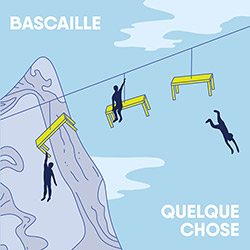

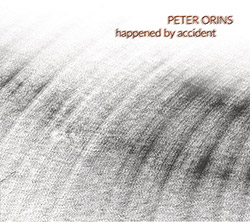


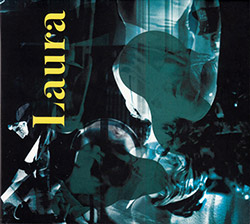

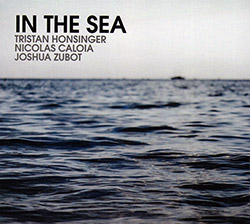


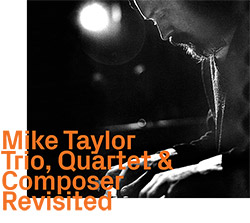
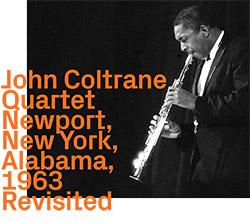



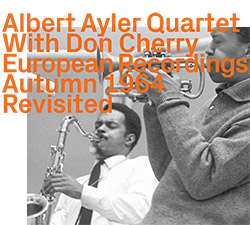

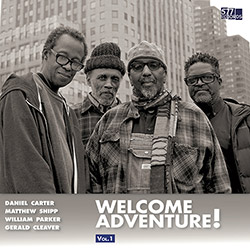
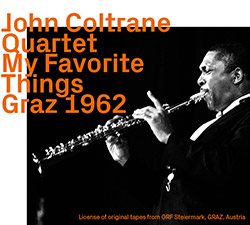



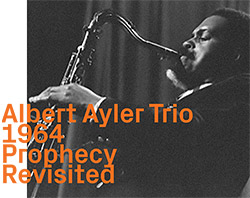
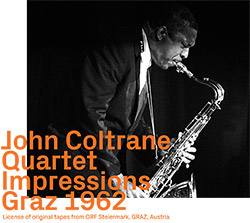
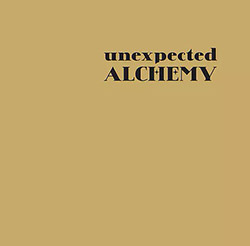




![BlueRing Improvisers: Materia [2 CDs]](https://www.teuthida.com/productImages/misc4/36513.jpg)








![Wheelhouse (Rempis / Adasiewicz / McBride): House And Home [VINYL]](https://www.teuthida.com/productImages/misc4/36462.jpg)
![+DOG+: The Light Of Our Lives [2 CDs]](https://www.teuthida.com/productImages/misc4/36009.jpg)


![Parker, Evan / Jean-Marc Foussat: Insolence [VINYL]](https://www.teuthida.com/productImages/misc4/36398.jpg)










![Deupree, Jerome / Sylvie Courvoisier / Lester St. Louis / Joe Morris: Canyon [2 CDs]](https://www.teuthida.com/productImages/misc4/36404.jpg)



![Eventless Plot | Haarvol: The Subliminal Paths [CASSETTE + DOWNLOAD]](https://www.teuthida.com/productImages/misc4/36232.jpg)










![Eventless Plot | Francesco Covarino: Methexis [CASSETTE + DOWNLOAD]](https://www.teuthida.com/productImages/misc4/36231.jpg)



![Das B (Mazen Kerbaj / Mike Majkowski / Magda Mayas / Tony Buck): Love [VINYL]](https://www.teuthida.com/productImages/misc4/36329.jpg)


![Eternities: Rides Again [CASSETTE]](https://www.teuthida.com/productImages/misc4/36247.jpg)
![Lopez, Francisco: Untitled (2021-2022) [2 CDs]](https://www.teuthida.com/productImages/misc4/36438.jpg)






![Money : Money 2 [2 CDs]](https://www.teuthida.com/productImages/misc4/35894.jpg)




![Klinga, Erik: Elusive Shimmer [VINYL]](https://www.teuthida.com/productImages/misc4/36258.jpg)
![CHANGES TO blind (Phil Zampino): Volume 9 - I Wave on a Fine Vile Mist [CD + DOWNLOAD]](https://www.teuthida.com/productImages/misc4/36061.jpg)

![Wallmart / Rubbish: Asset Protection [split CD]](https://www.teuthida.com/productImages/misc4/35900.jpg)


![+Dog+: The Family Music Book Vol. 5 [2 CDs]](https://www.teuthida.com/productImages/misc4/35897.jpg)
![Kuvveti, Deli : Kuslar Soyledi [CASSETTE w/ DOWNLOAD]](https://www.teuthida.com/productImages/misc4/36107.jpg)

![Brown, Dan / Dan Reynolds: Live At The Grange Hall [unauthorized][CASSETTE]](https://www.teuthida.com/productImages/misc4/36245.jpg)








![Palestine, Charlemagne / Seppe Gebruers: Beyondddddd The Notessssss [VINYL]](https://www.teuthida.com/productImages/misc4/36206.jpg)
![Palestine, Charlemagne / Seppe Gebruers: Beyondddddd The Notessssss [NEON GREEN VINYL]](https://www.teuthida.com/productImages/misc4/36207.jpg)

![Laubrock, Ingrid: Purposing The Air [2 CDs]](https://www.teuthida.com/productImages/misc4/35639.jpg)

![Yoko, Ono / The Great Learning Orchestra: Selected Recordings From Grapefruit [2 CDs]](https://www.teuthida.com/productImages/misc4/35841.jpg)









![Zorn, John / JACK Quartet: The Complete String Quartets [2 CDs]](https://www.teuthida.com/productImages/misc4/35609.jpg)

![Lonsdale, Eden: Dawnings [2 CDs]](https://www.teuthida.com/productImages/misc4/35480.jpg)



![Sorry For Laughing (G. Whitlow / M. Bates / Dave-Id / E. Ka-Spel): Rain Flowers [2 CDS]](https://www.teuthida.com/productImages/misc4/35985.jpg)

![Rolando, Tommaso / Andy Moor : Biscotti [CASSETTE w/ DOWNLOADS]](https://www.teuthida.com/productImages/misc4/36106.jpg)


![Electric Bird Noise / Derek Roddy: 8-10-22 [CD EP]](https://www.teuthida.com/productImages/misc4/35970.jpg)








![Elephant9 : Mythical River [VINYL]](https://www.teuthida.com/productImages/misc4/34624.jpg)



![Elephant9 with Terje Rypdal: Catching Fire [VINYL 2 LPs]](https://www.teuthida.com/productImages/misc4/35355.jpg)
![Deerlady (Obomsawin, Mali / Magdalena Abrego): Greatest Hits [VINYL]](https://www.teuthida.com/productImages/misc4/34876.jpg)







![Surplus 1980: Illusion of Consistency [CD]](https://www.teuthida.com/productImages/misc4/35069.jpg)
![Staiano, Moe: Away Towards the Light [VINYL + DOWNLOAD]](https://www.teuthida.com/productImages/misc4/35037.jpg)
![Coley, Byron: Dating Tips for Touring Bands [VINYL]](https://www.teuthida.com/productImages/misc4/17906.jpg)

![Lost Kisses: My Life is Sad & Funny [DVD]](https://www.teuthida.com/productImages/misc4/lostKissesDVD.jpg)